When it comes to buying a home, one of the most important questions you need to answer is, "How much home can I afford?" Determining your home's affordability is crucial because it helps you set a realistic budget and avoid overextending yourself financially. In this comprehensive guide, we'll walk you through the steps to determine your home affordability in the Boston area, so you can confidently take the next step towards homeownership.
Step 1: Calculate Your Income and Expenses
The first step in determining your home's affordability is to calculate your income and expenses. This includes your gross monthly income, any debt payments you're currently making, and your monthly expenses. Your gross monthly income includes all sources of income before taxes, while your debt payments include things like credit card payments, car loans, and student loans. Your monthly expenses include things like utilities, groceries, transportation, and entertainment.
Step 2: Determine Your Debt-to-Income Ratio
Once you've calculated your income and expenses, you'll need to determine your debt-to-income (DTI) ratio. This is the percentage of your monthly income that goes towards debt payments. To calculate your DTI, divide your total monthly debt payments by your gross monthly income. Ideally, your DTI should be below 43%, as this is the maximum allowed by most mortgage lenders.
Step 3: Estimate Your Down Payment
The next step in determining your home's affordability is to estimate your down payment. In the Boston area, most lenders require a down payment of at least 5%, although some may require up to 20% depending on the type of loan you're applying for.
Step 4: Consider Other Homeownership Costs
In addition to your monthly mortgage payment, there are other homeownership costs you need to consider, such as property taxes, homeowner's insurance, and maintenance and repair costs. These costs can vary depending on the location and size of your home, so it's important to do your research and factor them into your budget.
Step 5: Use a Mortgage Affordability Calculator
Finally, you can use a mortgage affordability calculator to determine how much home you can afford based on your income, expenses, down payment, and other homeownership costs. These calculators are widely available online and can help you get a ballpark estimate of your affordability.
In conclusion, determining your home affordability in the Boston area requires careful consideration of your income, expenses, debt-to-income ratio, down payment, and other homeownership costs. By following these steps and using a mortgage affordability calculator, you can set a realistic budget and confidently take the next step towards homeownership.
Selling Your Home?
Get your home's value - our custom reports include accurate and up to date information.



